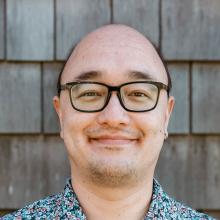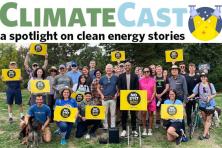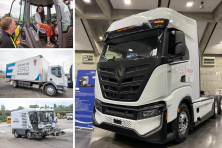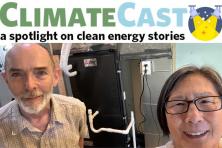If you live anywhere west of the Cascades in the Pacific Northwest, you likely woke up yesterday to an awful late-summer surprise (if you weren't under wildfire threat already): a blanket of unhealthy wildfire smoke. Today, much of the state’s air quality remains ‘unhealthy’, with many communities facing evacuation orders.
We are all hoping that the smoke clears soon, but these more frequent and destructive wildfires are one of many symptoms of the climate crisis, which aren't going away on their own. Wildfires, COVID-19, and other threats to our lungs will only get worse unless we act now. A wildfire is not fought by putting out flames one at a time: it is fought by looking at the entirety of the fire, containing its spread, and by being proactive in addressing the root causes.
We need to have the same approach for addressing climate-harming pollution. The challenges we face and the scope of the work we have to do are unprecedented. To make it happen, we need policy changes at every level of governance, lots of people power, and an overarching vision for a more just and equitable future. Here are three ways to get started.
1. Support impacted communities
There are more than 35 active fires across the state, with more than 100,000 people without power and too many homes evacuated. Gov. Brown has told us that the next couple of days are going to be difficult. Supporting the Red Cross Cascades Region is one thing we can do for each other.
2. Testify to support tough pollution limits (Oregon)
The State of Oregon is creating a new program to progressively limit the amounts of climate-harming pollution that big industries can emit to cut a lot more carbon. We know industries will turn out saying they don't like the plan. Can you testify at the upcoming town hall sessions so the public's voice is heard? You can learn more about it in this blog post.
3. Sign the climate voter petition (Washington)
Sign our petition calling on the Washington State Legislature to #leadonclimate. We know that delaying climate action is as bad as climate denial and we need the legislature to not be a question mark on climate action. We need commitment to #leadonClimate and to pass a Clean Fuel Standard in 2021. Our health cannot wait.
4. Make your own smoke filter
Our public health system is already at capacity dealing with COVID-19. If you don’t have air conditioning and can't purchase an air purifier, you can make your own smoke filter with a box fan and a trip to your local hardware store.





